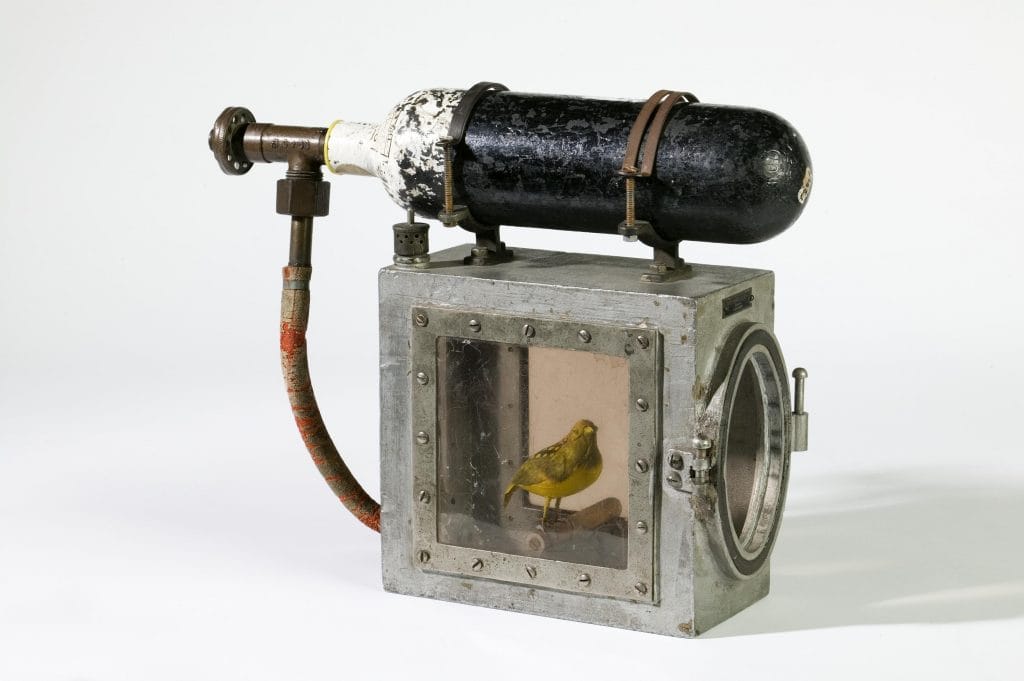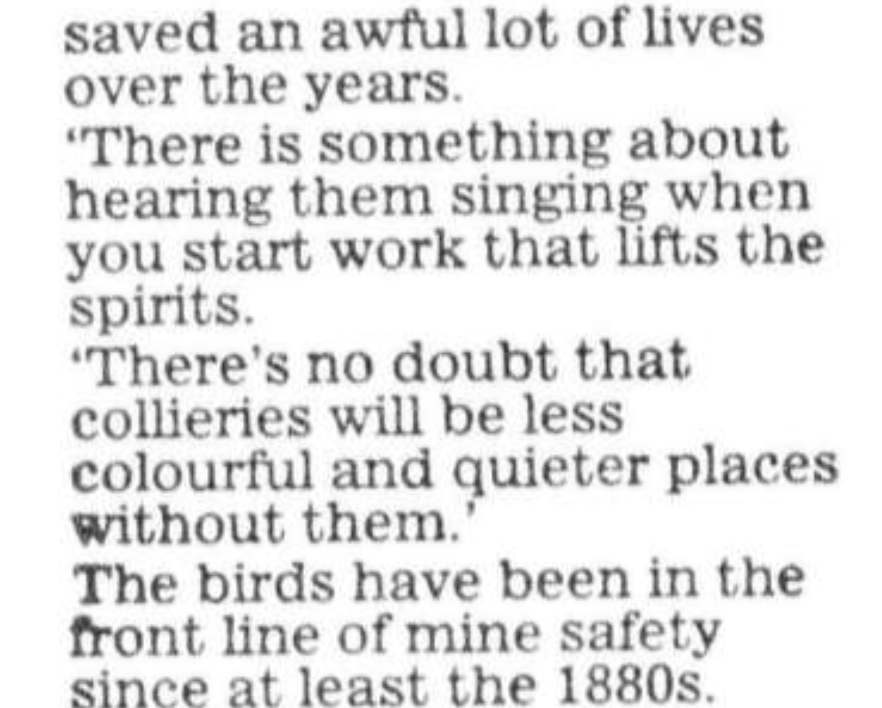The True Story of the Canary in the Coal Mine
Coal mining became a vital and deadly industry with the industrial revolution. Workers faced unforgiving conditions with cave-ins, explosions, and carbon monoxide poisoning as common hazards.
Carbon monoxide, responsible for both poisoning workers and causing explosions, proved difficult to detect due to the colorless and odorless nature of the gas.
Enter Physiologist John Haldane, who proposed the use of birds as early warning signals. Birds can fly at high altitudes because of their ability to absorb oxygen while inhaling and exhaling. However, this double-dose of oxygen also makes birds highly susceptible to airborne poisons.
Haldane’s idea was a god-send for coal miners. When a canary fainted from carbon monoxide poisoning, the miners knew to leave the mine. And the bird was, hopefully, revived.

By 1911, canaries became regulation for British coal miners. Miners were required to carry two caged birds into the mine upon each descent.
They took to treating the canaries like pets. A kinship developed with the creatures, whose singing lifted the miner's spirits.
The practice was replaced in 1986 with modern technology by the British Coal Industry. And the miners felt a sense of loss.
Even in 1996, when legislation required miners to replace canaries with electronic sensors, the miners continued to argue that canaries are safer because “batteries can fail – canaries don’t.”

In our culture, “the canary in the coal mine” represents an early warning of imminent danger that has become a cliche. Yet both the cliche and true story steal the canary’s life for a worldy purpose.
Who are the canaries in our world? Are they not countless — the number of people forced to acquiesce to unwell situations in order to survive?
Were the coal miners themselves — subjected to impossibly harsh working conditions at laughable wages and worked to their limit for constant fuel supply — not also canaries, supporting families many never got to see grow?
Every canary who continues to sing is a miracle. But we — the people of this world — are worth more than fulfilling a purpose someone else has determined.
We will not be companions to the coal mine.
We will leave the ancient earth where it rests and go be birds in the sky.
A Millennial’s First Home
Rheanne Taylor
Welp, I finally own a home
Now that I’m ninety-five
It’s not the acreage that I hoped for
But it’s got a red brick drive
Yes the house itself is small
And the land is just alright
But the view is something to behold
As I go to bed each night
One neighbor is an accountant
He’s a wonderfully simple man
His daughter brings him flowers
Every Sunday when she can
My neighbor Jules loves gardening
(She’s the pickiest eater I know)
She hates tomatoes and onions and kale
But she loves to watch them grow
And up a bit north is a gal named Jean
Her grandson moved nearby
And, Jean, she loves to have him here
But she hoped he would take more time
It’s been quite nice to just slow down
And chat with the friends I’ve met
And now that I have a place of my own
I’m not plagued by my regret
I once had dreams of owning more
And hosting parties for all my friends
But this small spot will do just fine
Though it’s different from my plans
The frogs here love to sing each night
There’s a family of mice above my head
A grey cat basks in the sun on my lawn
There are mushrooms in my bed
There’s no porch, no kitchen, no shining lights
But the earth here keeps me warm
And now I see a whole world of things
I was too busy to see before
I may have found my home a bit late
Had no land I got to tend
But even the friends around me here
Lost their investments in the end
I spent many years trying to find my place
And in the end, it just wasn’t cheap
But at least I’ve got these walls of earth
In my soft bed six feet deep
From the Start
Laufey
Laufey's soulful jazzy tune on unrequited love will send you swooning over her voice and incredible piano skills.
